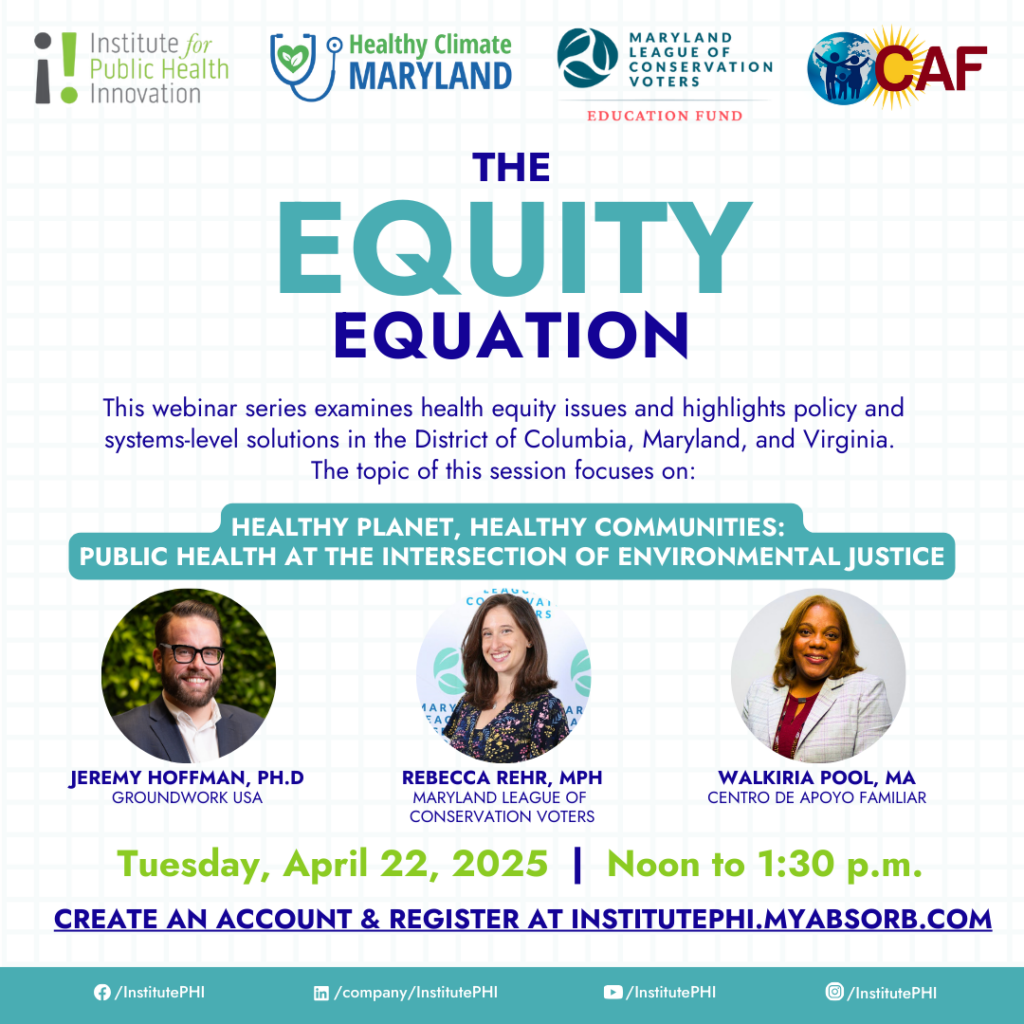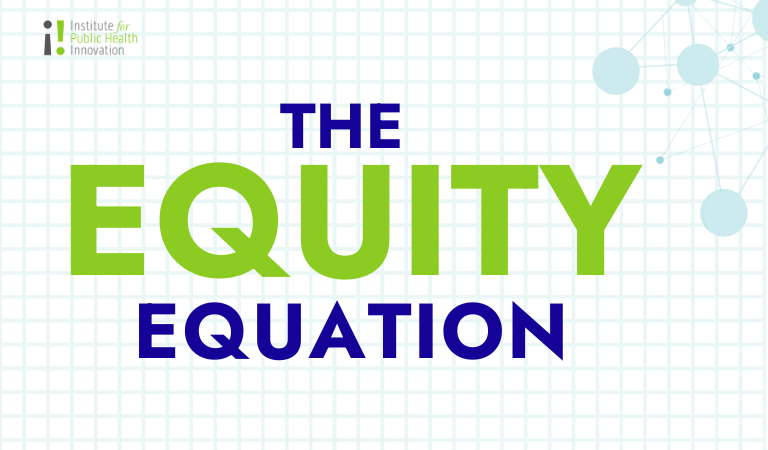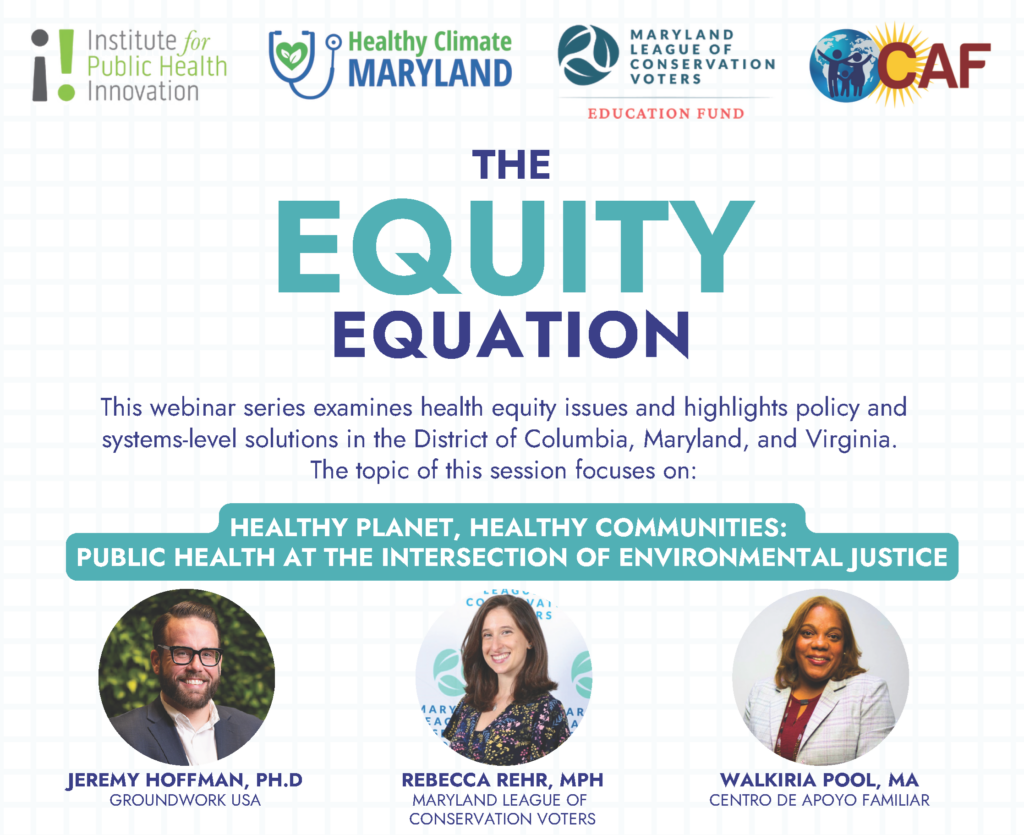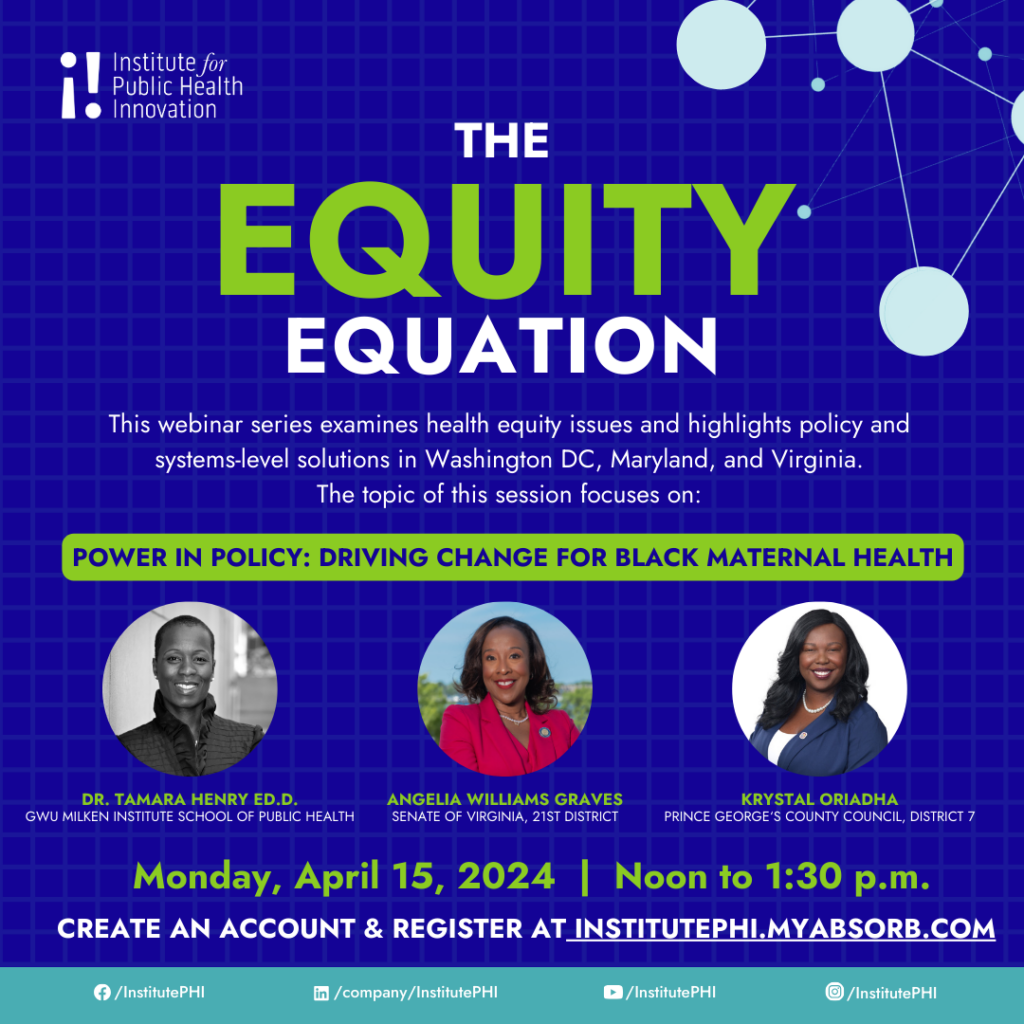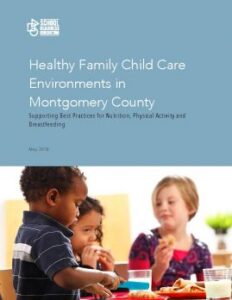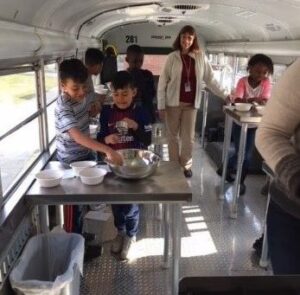This webinar series examines health equity issues and highlights policy and systems-level solutions in the District of Columbia, Maryland, and Virginia. The topic of the fourth session will focus on, “Healthy Planet, Healthy Communities: Public Health at the Intersection of Environmental Justice.”
To register, visit: https://tinyurl.com/5n7t5dfu
Instructions on how to enroll:
- Visit: IPHI Absorb website
- Once on the Equity Equation Webinar Series Homepage CLICK “Sessions”
- Enroll in the “Healthy Planet, Healthy Communities: Public Health at the Intersection of Environmental Justice” on April 22, 2025.
